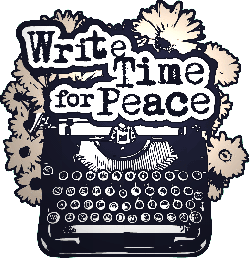Today thirty of us who are fasting gathered on the steps of the Journalists’ Syndicate to issue a statement about the fast. It was a beautiful gathering. We held signs asking for the siege of Gaza to be lifted, read the statement in several languages, and then listened as some of the hunger strikers made personal statements.
Among us were several veteran peacemakers from the States, including John Dear, SJ, Fr. Louie Vitale, and Martha Hennessy, granddaughter of Dorothy Day. There were also several fasters from other nations.
The heart of the fast here in Cairo, of course, is 86-year-old Hedy Epstein, Holocaust survivor and human rights activist, who initiated the hunger strike as a response to Egypt’s refusal to allow us entry into the Gaza Strip.
The tone of this gathering was very calm and peaceful as the names of Gandhi, Jesus, and Dorothy Day were invoked. Although the weather here this week has been very pleasant, today the sun shone with a special intensity and it was pure gift to simply sit in the sun among our fellow fasters.
I struck up a conversation with a faster from California who had attended a Sabeel conference in Detroit last year. She is a Quaker and we had a good discussion about the different ways that people understand fasting.
For example, several of the fasters here are clear that for them this is a political hunger strike and not a spiritual fast. For some, the fast is a way of acknowledging complicity and is undertaken as an act of penance, while, for others, it is a way of uniting personal discomfort with the suffering of the world.
For me, fasting has always been a way of physically experiencing – to a very slight degree – the hunger for peace, justice, and human rights that so many in the world experience. My physical hunger pangs are nothing compared to the pain of living under oppression.
If I can share in some minute way in this hunger for a better world, then I am humbled to fast from my position of first world privilege as a small act of solidarity with those who have been fasting all their lives.
And who has been fasting more than the people of Gaza? Who has experienced more hunger? The hunger for freedom of movement, the hunger to live without being bombed, the hunger to live securely in one’s own home, the hunger for freedom. The hunger to be heard in a world that chooses not to listen.
Although this was supposed to be a very short press conference and thirty hungry people sitting on steps are hardly a threat, the Egyptian riot police were summoned and a large group of them lined the sidewalk directly in front of us.
Usually, the regular police come out first here, but this time they started with the riot police who arrived on the scene carrying shields and batons. Around the corner, two large vans filled with policemen were waiting to join the action.
As the final statements were being read, one of the police commandeers started very slowly and methodically collecting and stacking the shields held by his men, a menacing strategy that served to escalate the tension on the street. Obviously, clubs are all one needs in the face of 30 middle-aged and elderly fasters wearing white scarves as a symbol of satyagraha.
Fortunately, the press conference ended within an hour, and the police officers never used their clubs.
As we have noted throughout the week, we believe that many of these officers are conflicted and would find it difficult to follow orders to beat us, although events on the street yesterday suggest that this is observation is not universal.
For the most part, however, the conscripted police here are generally young men who frequently greet us, thank us for taking a stand for justice, and laugh easily when their superiors are not looking on.
But what does this mean in a culture of fear predicated on obedience to the authorities?
While we are followed and detained everywhere we move here, we are not subjected to the same treatment that Egyptian activists are. We have heard horror stories this week about what awaits Egyptians who challenge this government. What should these young men do? What would I do were I in their shoes?
I don’t know that I would possess the internal strength to resist orders, knowing full well the consequences for me and my loved ones.
What a stranglehold authoritarianism places on one’s autonomy! How fear is used to stifle all that makes us human!
It is so easy to be an armchair analyst of these things from the comfort of an American academy. To say that we ourselves would never follow orders.
And yet . . . There is malevolence to this kind of manipulation of the human spirit that is really demonic and far more powerful than we want to acknowledge.
I know that I cannot claim any kind of moral superiority in the face of such consciously orchestrated cruelty. Intimidation, threats, torture. What to say? Perhaps there is nothing to say. Ultimately, I feel compassion for these young men.
Before we left the press conference, Dorothy very slowly and consciously walked in front of the police officers, gazing into the eyes of each.
Very, very powerful and very much in the spirit of our fast. To acknowledge the humanity of all. The divine spark in each person – even the brute who is himself ensnared in his own death-dealing system.
We have noted in our time here that we experience far more joy – far more life – in Palestine than in Egypt. More music, more laughter, more long hours drinking coffee and sharing stories, more human spirit. There is a different kind of occupation here.

